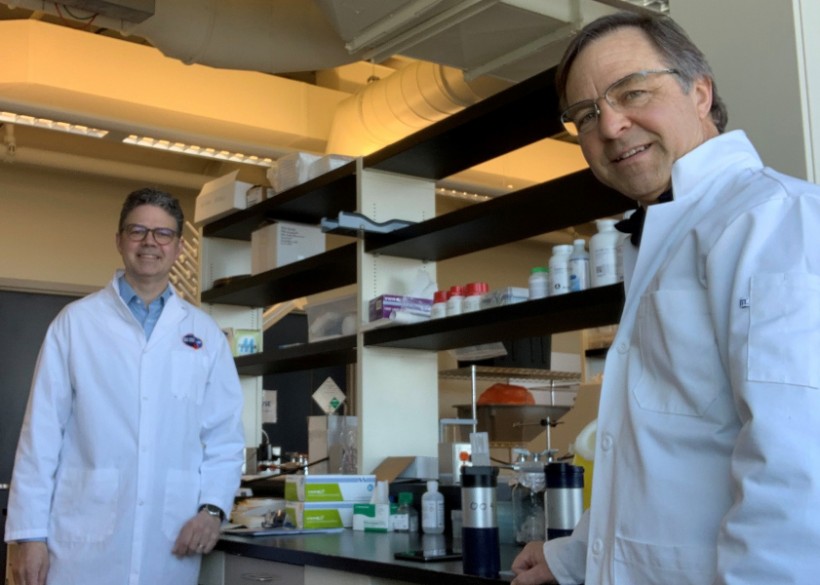A research team affiliated with Charlottetown-based Fieldetect Inc. has received a $355,000 federal grant to convert its veterinary product to a medtech device that could test for Covid-19 in humans.
The Canadian Institutes of Health Research, or CIHR, announced Friday that it would provide the grant to a research team led by the University of Prince Edward Island. The team has been developing a hand-held, portable device called LabAnywhere, which can quickly test animals on farms to see if they’re carrying viruses. The CIHR grant will be used to help adapt the technology so it can be used to quickly test people for Covid-19.
“We began developing this technology several years ago with the goal of helping farmers manage livestock and crop diseases better,” UPEI Professor Andrew Trivett, one of the lead researchers, said in a statement. “We are really excited to see our work enter the fight against this new threat to our communities.”
Trivett and his colleague William Whelan, along with their team, set up Fieldetect as a company to commercialize LabAnywhere. They have licenced the patent-pending technology from UPEI and are now looking for equity investment to help bring the product to market.
Trivett last November pitched the technology at the BioInnovation Challenge, the annual pitching competition for Atlantic Canadian life sciences companies. He was one of three finalists in the competition.
“We were working on a couple of the markets in the agriculture sector that we think are important,” Trivett said in an interview Monday, adding he has attended several investment conferences and met with a range of potential backers.
“We’re still looking for right partners for investment and have been doing more proof-of-concept [work] for the product. Then all of a sudden coronavirus happened in the human market and we pivoted quite quickly.”
Dartmouth-based IMV Working on Covid-19 Vaccine
He added he has ramped up talks with investors as the team turned its focus to the coronavirus, including possible strategic partners that have divisions specializing in both animal and human health. If he succeeds in raising capital and everything goes smoothly, Trivett said the team could have a prototype that could test humans by the end of the summer.
In veterinary medicine, current methods of detecting viruses require trained technicians to process samples in a central testing lab. The UPEI technology was developed to allow biological samples to be quickly analysed anywhere—in a barn, field, or on a tractor—without pristine laboratory conditions.
Now the team plans to apply the LabAnywhere technology to detecting human diseases. The research team plans to use easily handled, safe viruses from the animal world for initial testing to validate the methods then move to tests using human viruses once initial trials are complete.
As well as Whelan and Trivett, the team includes UPEI researchers Marya Ahmed, Javier Sanchez and Dan Hurnik. Solke De Boer, who is retired from the Canadian Food Inspection Agency, and Mark Redmond of the PEI BioAlliance round out the team. The team has been working with such support groups as Emergence Bio-Business Incubator, Synapse, Springboard Atlantic, the Atlantic Canada Opportunities Agency, and Innovation PEI.
“When we were notified of the award, I was in self-isolation, after being tested for Covid-19,” said Whelan in the statement. “I received my test result, which was negative, two days later. With this funding, we will work hard to deliver an on-site, rapid test for coronaviruses, with results in an hour.”










